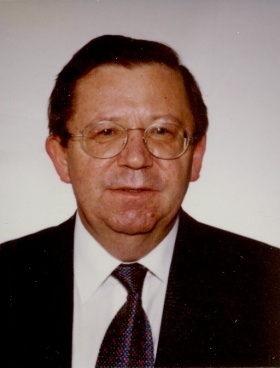In memoriam Horst Haselsteiner
Horst Haselsteiner was a historian of Central and Southeastern Europe and the Habsburg Monarchy – both of which concerned his fate and his research interests.
 Credit: europainstitut.hu
Credit: europainstitut.huHe was born in Belgrade, Yugoslavia (today Serbia), which was besieged by the Germans in 1942. His mother was Hungarian and his father was Austrian. The events of the region led the young man – a native speaker of three languages – to Vienna, Austria. He graduated in 1960, five years after the Austrian State Treaty had been signed, which set the country on a course to flourish. He began studying law, but soon after, while exploring the background of his family’s and his own fate, he found the path that led him to history research. He was relatively young when he received his doctorate at the age of 28 with the guidance of his friend and mentor, Richard Georg Plaschka, an iconic figure in Austrian research regarding the history of Central Europe.
His choice of theme was probably influenced by the growing interest in the Habsburg dual Monarchy on the occasion of the 100th anniversary of the Austro-Hungarian Compromise in 1867. In 1976, he published a monograph about the relationship of Serbia to the Compromise (Die Serben und der Ausgleich. Zur politischen und staatrechtlichen Stellung der Serben Südungarns in den Jahren 1860–1867, Wien–Köln–Graz). He became an assistant to his professor at the Institute for the History of Eastern Europe, Vienna University in 1970, where he defended his PhD thesis. He was open-minded, spoke several languages, led a sport-oriented lifestyle, and worked very hard, just as his professor and fellow assistant lecturer, Arnold Suppan, did. The first major project of these three researchers was completed in only three years. They summarised the history of the “inner front” of the Dual Monarchy and the causes leading to the collapse in 1918 based on scarcely known sources (R. G. Plaschka – H. Haselsteiner – A. Suppan: Innere Front. Militärassistenz, Widerstand und Umsturz in der Donaumonarchie 1918 I–II. Wien, 1974). The work was published in two volumes and has been considered a milestone in the research of this subject matter to this very day.
The central theme of his next major monograph seems to depart from the aforementioned subject. In 1981, he received his habilitation on the subject of Joseph II’s relationship with the Hungarian counties (Joseph II. und die Komitate Ungarns. Wien – Köln – Graz, 1983). However, if we look at his oeuvre, the two themes are easily connected. Throughout his life, Professor Haselsteiner was interested in the network of relationships among the peoples in the Austro-Hungarian Empire. Using his legal knowledge, he wanted to understand to what extent the administrative system of this complicated state was able to handle the dynamism of political, policy-making and cultural movements. When and why was it successful? What were the causes of the final failure of the great power that had already survived several problems and conflicts? Why did confrontations outnumber cooperative actions? Were the different federative plans illusory from the beginning? Or could there have been hope for their revival if the international situation had been favourable? If a federation was impossible, what other form of administration could have given or could give a chance for the peoples of Central and South Eastern Europe to arrive at a peaceful cooperation, ensuring that all of them gain from it?
The abovementioned problems did not solely serve as research questions for Haselsteiner, who had a huge network of friends and colleagues, but also formed his scientific and public roles. Between 1988 and 1993, he was a professor at the University of Graz, and from 1993 until 2010 he occupied his mentor’s position at the University of Vienna. During these years, he organised numerous conferences for the most creative and open-minded researchers of the region, edited several volumes, and provided countless research grants for young researchers working in the successor states of the Austro-Hungarian Monarchy.
The possibilities of the time were the focus of his interest as a very active member of the supervisory board of the European Institute founded in 1990, as the founding dean of the Central-European Study and Research Program of Andrássy University, Budapest, and as a member of the supervisory boards of several foundations related to central Europe. He helped to sustain and enrich the cooperative efforts of Austrian and Hungarian historians, which had begun in the last third of the 1960s. This cooperation helped to dissolve old stereotypes through conferences and publications. He always supported colleagues who were able and willing to think about this region as an empire and who were able to coordinate their national identity with the objectivity of a historian. He facilitated the birth of countless source publications, volumes and monographs by being endlessly patient and taking steps at the perfect moment.
His work was honoured as he became a member of the Austrian Academy of Sciences in 1993. He was also an honourary member of the Hungarian Academy of Sciences from 2011. He received the Deák Ferenc Research Award of the Pro Renovanda Cultura Hungariae Foundation. Horst Haselsteiner was a representative of those who believed and still believe that the cooperation of peoples in Central and South Eastern Europe is not an unfounded dream, but a possibility that can be identified and exploited. This was exemplified by his private and professional cooperation with his colleagues. His oeuvre, which inspires respect and acknowledgement, delivers us this message and also gives us hope.
